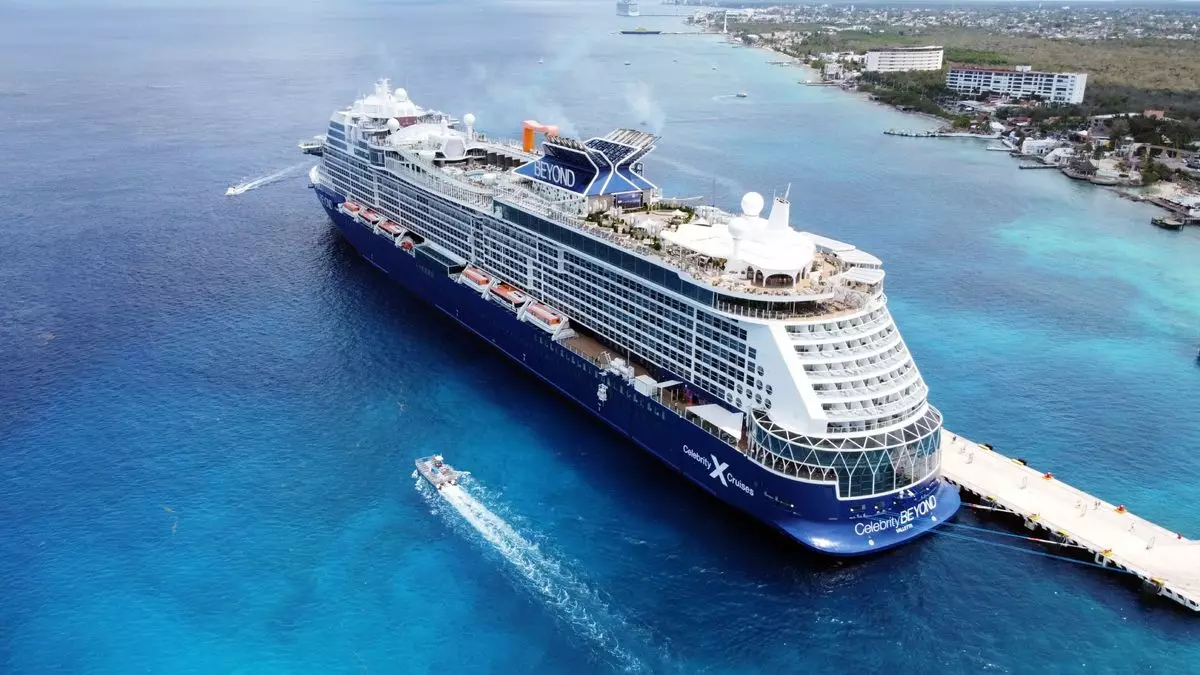In a recent development that has raised eyebrows across the cruise industry, Mexico’s Congress approved a $42 passenger tax for cruise visitors, which has led to a strong response from the Florida-Caribbean Cruise Association (FCCA) and industry executives. This decision may not only alter the dynamics of cruise tourism in Mexico but also pose significant risks to its broader economic landscape, which heavily relies on tourist spending.
FCCA CEO Michele Paige highlighted that this tax would elevate the cost of cruise tourism in Mexico by a staggering 213% compared to average fees at Caribbean ports. Such a price hike could deter travelers from choosing Mexico as a cruising destination, effectively forcing the country from a competitive position in the cruise tourism market. Historical data from the FCCA has shown that cruise ports in Mexico garnered approximately $62.6 million in port fees during the 2023-24 cruise season. However, the introduction of this tax could substantially alter passenger patterns, leading to a decline in demand that would directly impact revenue.
Research indicates that over 10 million cruise passengers and around 3,300 ship arrivals are projected for Mexican ports in 2025. Given that the cruise tourism sector contributes roughly $1 billion in direct economic activity and supports over 20,000 jobs annually, the implications of the newly minted tax could be dire. In Quintana Roo, a region notably reliant on tourism—particularly the ports of Cozumel and Costa Maya, which account for 40% of the state’s GDP—the tax poses a considerable threat to the economic stability that has been cultivated over the years.
The FCCA further emphasized that the implementation of this tax could endanger both existing jobs and future investments. The prospect of investing billions in developments aimed at revitalizing regions such as Acapulco and diversifying the tourism offerings to include new destinations is now called into question. Cruise lines, traditionally stakeholders eager to bolster local economies through their investments, are now faced with an overriding dilemma: the question of whether to continue funding these initiatives amidst an increasing tax environment that could drive travelers away.
Michele Paige expressed disappointment not only over the tax itself but also over how it was enacted without consultation with the cruise industry. This lack of communication within a historically beneficial partnership indicates a disconnect between policymakers and key industry players, which could hinder prospects for recovery and growth in the sector.
The FCCA’s letter to Mexico’s President Claudia Sheinbaum conveyed a palpable sense of urgency and frustration. The decision to scrap a long-standing tax exemption appears unilateral, with the industry caught unawares by the swift action to implement this policy. The cruise industry operates on complex dynamics of supply and demand, and sudden tax shifts can significantly disrupt established patterns.
Moreover, the expectation that this tax will take effect within approximately a month emphasizes the lack of gradual adaptation for both the cruise lines and potential travelers. Rapid shifts such as this can lead to uncertainty in travel planning for clients, creating a ripple effect that might steer them towards alternate cruising regions where economic conditions are more favorable.
Mexico’s recent approval of a $42 cruise passenger tax could herald a precarious phase for the cruise tourism sector within the country. The potential for reduced demand, increased costs for travelers, and the subsequent impact on local economies, particularly in Quintana Roo, are concerning ramifications that may manifest soon.
The cruise industry calls for a reconsideration of this policy, suggesting that cooperation and dialogue could lead to solutions that foster growth for both the tourism sector and the Mexican economy. As the dust settles, it becomes evident that striking a balance between national revenue interests and the preservation of a robust tourism industry will be key to ensuring mutual benefits in the years to come.


Leave a Reply